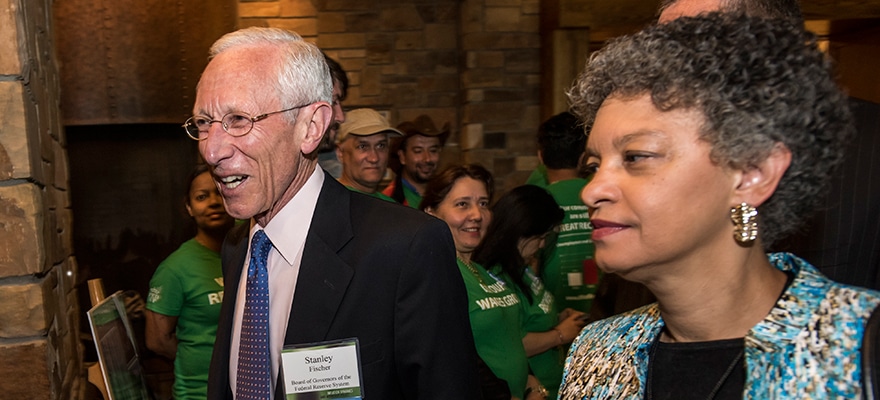The U.S Federal Reserve Vice Chairman, Stanley Fischer, spoke yesterday at the Kansas City Fed’s annual retreat in Jackson Hole, Wyoming. His remarks gave insight into the American central bankers' mindset following the recent turmoil in world markets.
Fischer stated that he can not reveal what decision the Fed heads will reach in its meeting on September 17. However, his statements as a whole seem to suggest that they will not changes their current plans to raise interest rates this year.
The vice chairman assured attendees that the Fed is reasonably confident that inflation will move back to its 2 percent objective over the medium term. He said: "As I have discussed, given the apparent stability of inflation expectations, there is good reason to believe that inflation will move higher as the forces holding down inflation dissipate further. While some effects of the rise in the dollar may be spread over time, some of the effects on inflation are likely already starting to fade.
The same is true for last year’s sharp fall in oil prices, though the further declines we have seen this summer have yet to fully show through to the consumer level. And slack in the labor market has continued to diminish, so the downward pressure on inflation from that channel should be diminishing as well."
International Outlook
The meeting came after a hectic period of Volatility worldwide, mainly attributed to China's recent shakeups, which the Fed can not afford to ignore in its calculations. Showing that the American central bank is fully aware and keeping an eye of the situation, Fischer commented: "We need to consider the overall state of the U.S. economy as well as the influence of foreign economies on the U.S. economy as we reach our judgment on whether and how to change monetary policy.
That is why we follow economic developments in the rest of the world as well as the United States in reaching our interest rate decisions. At this moment, we are following developments in the Chinese economy and their actual and potential effects on other economies even more closely than usual."
Fischer, a former head of the Bank of Israel, ended his remarks by acknowledging the Fed's global position of responsibility. "I am well aware that, when the Federal Reserve tightens policy, this affects other economies. The Fed’s statutory objectives are defined in terms of economic goals for the economy of the United States, but I believe that by meeting those objectives, and so maintaining a stable and strong macroeconomic environment at home, we will be best serving the global economy as well."


















